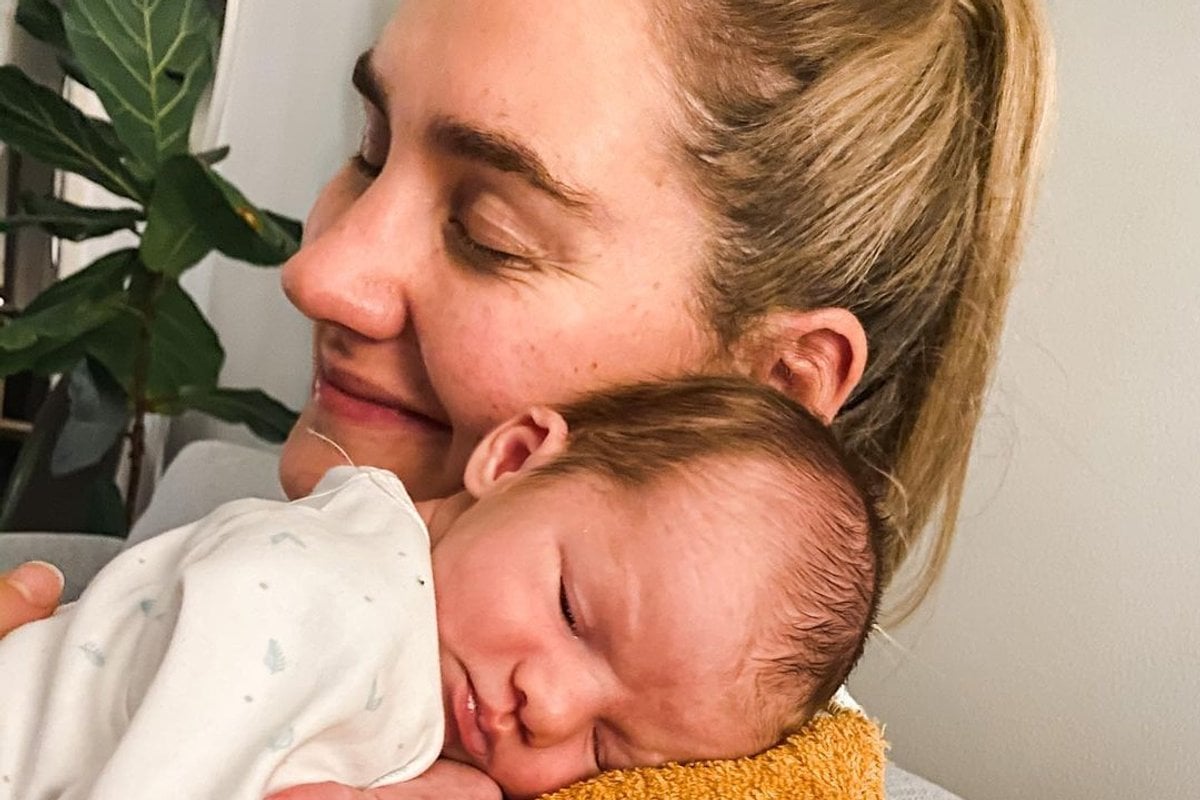
"Oh, by the way, the 'no sex for six weeks post-birth' rule applies to masturbation as well."
My home-visit nurse was on her way out, at the end of our one-week check in, and she threw this one out there like a grenade before turning to go.
"Wait, what?" This had jolted my exhausted, half-closed eyes wide open. "Why?" I asked, incredulous.
While you're here, watch the trailer for Mamamia's podcast, The Delivery Room. Post continues after video.
She proceeded to explain that the uterus contracts during orgasm, and it could tear my internal stitches wide open. Could this be true? Welcome to the post-caesarean recovery minefield. It’s full of bizarre facts, personal opinions, and old wives tales, so strap in.
A caesarean section, commonly referred to as a 'caesar' or 'c-section' accounts for about 37 per cent of births in Australia in 2022. And for a process that over a third of birthing parents' experience, it’s both misunderstood and unfairly maligned.
The thing is, for many women, the decision to go down the surgical route isn’t made until towards the end of the third trimester. For others, it’s not until they’re deep in the throes of established labour when something changes to indicate a need for an emergency c-section. This means a lot of us are going in with little time to get our heads around this way of giving birth.


Top Comments